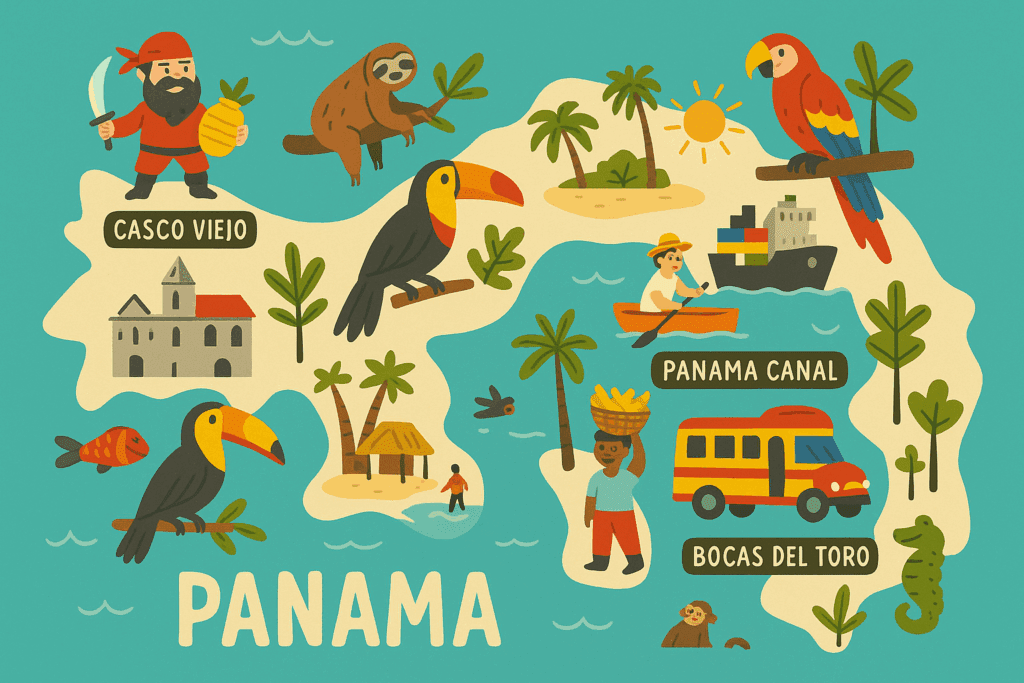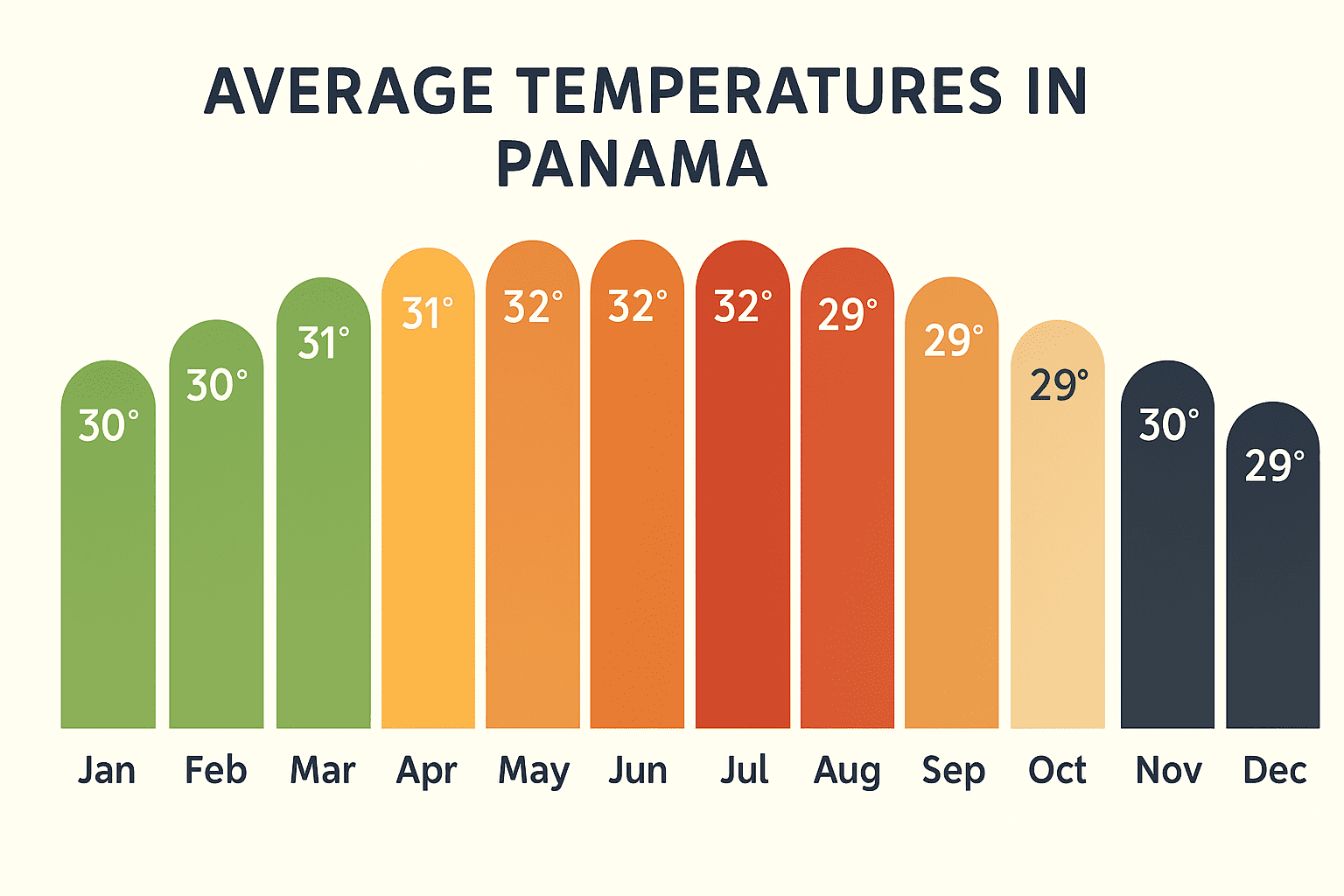Boquete
USD
$550–$1,600 USD
Tropical with a dry & green season


Yes — especially in areas like Boquete, El Valle de Antón, and parts of Panama City like Casco Viejo or Punta Pacifica. While Panama is generally safe, like any country, it’s smart to stay aware of your surroundings and avoid walking in unfamiliar areas after dark.
The dry season (December to April) is ideal for family travel — you’ll get plenty of sun, fewer mosquitoes, and more predictable conditions for outdoor adventures. The “green” season (May–November) can be lush and beautiful too, just pack for occasional downpours.
It depends on your style. Panama is less touristy and often more affordable, with solid infrastructure and fewer crowds. Costa Rica offers more obvious eco-tourism routes. For families looking for culture, history, and ease of travel, Panama wins.
Not always. In Panama City, Uber is widely available and reliable. For day trips or visiting mountain towns like Boquete or Santa Fé, renting a car can be useful — especially with younger kids or gear in tow. Buses and domestic flights are great for longer distances.
If you’re leaning toward beach-heavy downtime, Panama City Beach (Florida, not Panama!) often pops up in search. But yes — Panama itself has family-friendly resorts too, especially on the Pacific Coast and in Bocas del Toro. Look for resorts that list “family suites” or offer activities like snorkeling or zip lining for children.
Panama is deceptively compact, but there’s plenty of variety. Here are some family-favorite regions:
Not just a stopover — Panama City’s vibrant neighborhoods, like Casco Viejo, mix colonial architecture with ice cream shops and leafy plazas perfect for kids to run around. The Biomuseo is interactive and bright (and blessedly air-conditioned), while the Miraflores Locks offer up-close views of the iconic Panama Canal.
This highland town is cooler, calmer, and filled with family-friendly hiking. Think cloud forests, waterfall trails, and coffee farm tours where kids can sample chocolate and chase chickens.
Bocas is Caribbean Panama — stilted guesthouses, warm turquoise waters, and boat trips to dolphin-filled bays. Many families stay on Isla Colón or Isla Bastimentos for a few days of beach play and snorkeling. There are also jungle trails and sloth sanctuaries for off-beach exploring.
Indigenous-owned and absolutely stunning. Best for slightly older kids (ages 6+), San Blas is a collection of picture-perfect islands where families can unplug completely. Note: rustic stays and limited electricity — but huge rewards in the form of unfiltered beauty.
Panama’s dry season runs from mid-December to mid-April — this is the most popular and practical time to visit, especially with kids. You’ll get blue skies for exploring and easier logistics (no muddy trails or road washouts).
That said, the green season (May to November) can be a great time for lower prices, fewer crowds, and dramatic cloud-forest scenery. Rain tends to come in short, predictable bursts, so it’s often still very do-able.
Pro Tip: For families with school-age kids, consider traveling during spring break (late March–April) or early summer for ideal weather and manageable crowds.
Compared to Costa Rica, Panama is more budget-friendly — especially once you’re outside Panama City. Meals at local fondas cost as little as $3–5 USD, and mid-range family accommodation can be found from $50–90/night, depending on location and season.
Local buses are incredibly cheap (though not always the most comfortable with kids), and private shuttles or domestic flights are still reasonably priced for families who want smoother transitions between regions.
Ways to Save in Panama:
Eat like a local: Small roadside eateries are safe, tasty, and super cheap.
Stay longer: Guesthouses often discount weekly stays.
Skip tours: Many national parks and hikes are DIY-friendly with low or no entry fees.
Here’s a quick list of Panama activities that work for all ages:
Panama Canal tour (Miraflores Visitor Center or partial canal boat tour)
Jungle zip-lining in Boquete
Wildlife spotting in Soberanía National Park
Snorkeling in Bocas del Toro
Hiking the Pipeline Trail (sloth-spotting potential: high!)
Train ride across the isthmus (Panama Canal Railway, a hit with older kids)
San Blas sailing trips (ideal for adventurous families)
The key to packing for Panama? Think tropical and lightweight — but with a few extras for comfort and safety.
Lightweight clothing: Breathable fabrics, shorts, tank tops, swimsuits.
Layers for highlands: Boquete and El Valle get cool at night.
Bug spray: Especially for coastal and jungle regions.
Sun protection: Panama sun = intense.
Travel-friendly snacks: Great for rural travel days or picky eaters.
Waterproof shoes/sandals: Wet boat rides or rainforest hikes = soggy feet otherwise.
Light rain jackets: Particularly if visiting outside of dry season.
Panama is generally considered one of the safest countries in Central America. Violent crime is rare in tourist areas, and petty theft can be avoided with basic precautions.
Keep in mind:
Avoid flashing valuables.
Use registered taxis or rideshare apps in the city.
Keep passports/important docs in hotel safes.
Most family-friendly destinations like Boquete, El Valle, and Bocas del Toro are known for their laid-back, safe atmospheres.
We’re Sean, Tania, Atticus (8), and Aurelia (6) a not-so-ordinary family trading routines for backpacks and school runs for border crossings. In 2025, we set off on a year(ish) of slow travel through South and Central America.
No trust funds, no grand plan, just big dreams, small backpacks, and a lot of figuring it out as we go. From desert dunes to jungle hikes (and the occasional Netflix night in between), we’re learning how to make adventure our new normal.
Come along as we share honest family travel guides, kid-proof tips, and stories from the road, the good, the chaotic, and everything in between.
© 2025 Travel Venture Four. Inspiring family adventures across South America.